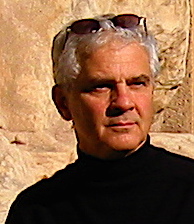A Quote by Sigmar Gabriel
It is clear that there are reasons for discontent in Iran - economic and political reasons. We have told the Iranian leadership repeatedly that the country's economic recovery can ultimately only succeed through greater international economic cooperation. And the precondition for that is not only that Iran refrain from developing nuclear weapons, but also that Iran's role in the region become far more peaceful. We have offered to finally hold true negotiations and talks on that issue.
Quote Topics
Also
Become
Clear
Cooperation
Country
Developing
Discontent
Economic
Economic Cooperation
Economic Recovery
Far
Finally
Greater
Hold
International
Iran
Iranian
Issue
Leadership
More
Negotiations
Nuclear
Nuclear Weapons
Offered
Only
Peaceful
Political
Reasons
Recovery
Refrain
Region
Repeatedly
Role
Succeed
Talks
Through
True
Ultimately
Weapons
Related Quotes
Iran's Supreme Court has issued a fatwa against the development of nuclear weapons. President [Hassan] Rouhani has indicated Iran will never develop nuclear weapons. I've made clear that we respect the right of the Iranian people to access peaceful nuclear energy in the context of Iran meeting its obligations.
Since taking office, I've made it clear that the United States was prepared to begin a new chapter of engagement with the Islamic Republic of Iran. We offered the Iranian government a clear choice. It could fulfill its international obligations and realize greater security, deeper economic and political integration with the world, and a better future for all Iranians. Or it could continue to flout its responsibilities and face even more pressure and isolation.
If the six-nation forums dealing with Iran and North Korea suffer comparable failures, the consequence will be a world of unchecked proliferation, not controlled by either governing principles or functioning institutions. A modern, strong, peaceful Iran could become a pillar of stability and progress in the region. This cannot happen unless Iran's leaders decide whether they are representing a cause or a nation - whether their basic motivation is crusading or international cooperation. The goal of the diplomacy of the Six should be to oblige Iran to confront this choice.
When it comes to preventing Iran from obtaining a nuclear weapon, I will take no options off the table. ... That includes all elements of American power: a political effort aimed at isolating Iran, a diplomatic effort to sustain our coalition and ensure that the Iranian program is monitored, an economic effort that imposes crippling sanctions and, yes, a military effort to be prepared for any contingency.
We support any deal that denies Iran nuclear weapons, that has a continuous and robust inspection mechanism and that has snap-back provisions in case Iran violates the agreement. Our concern is that Iran will use the income it receives as a result of the lifting of the nuclear sanctions in order to fund its nefarious activities in the region.
The real concern is that Iran would do what Pakistan did. Pakistan wanted nuclear weapons, like Iran, purely for defensive reasons - to defend itself against India. The problem was that once Pakistan acquired the weapons, it allowed the country to be more aggressive. So they stepped up their support for the Kashmiri terrorists, and it led very quickly to the Kargil crisis in 2000, which almost sparked a nuclear war between India and Pakistan.































